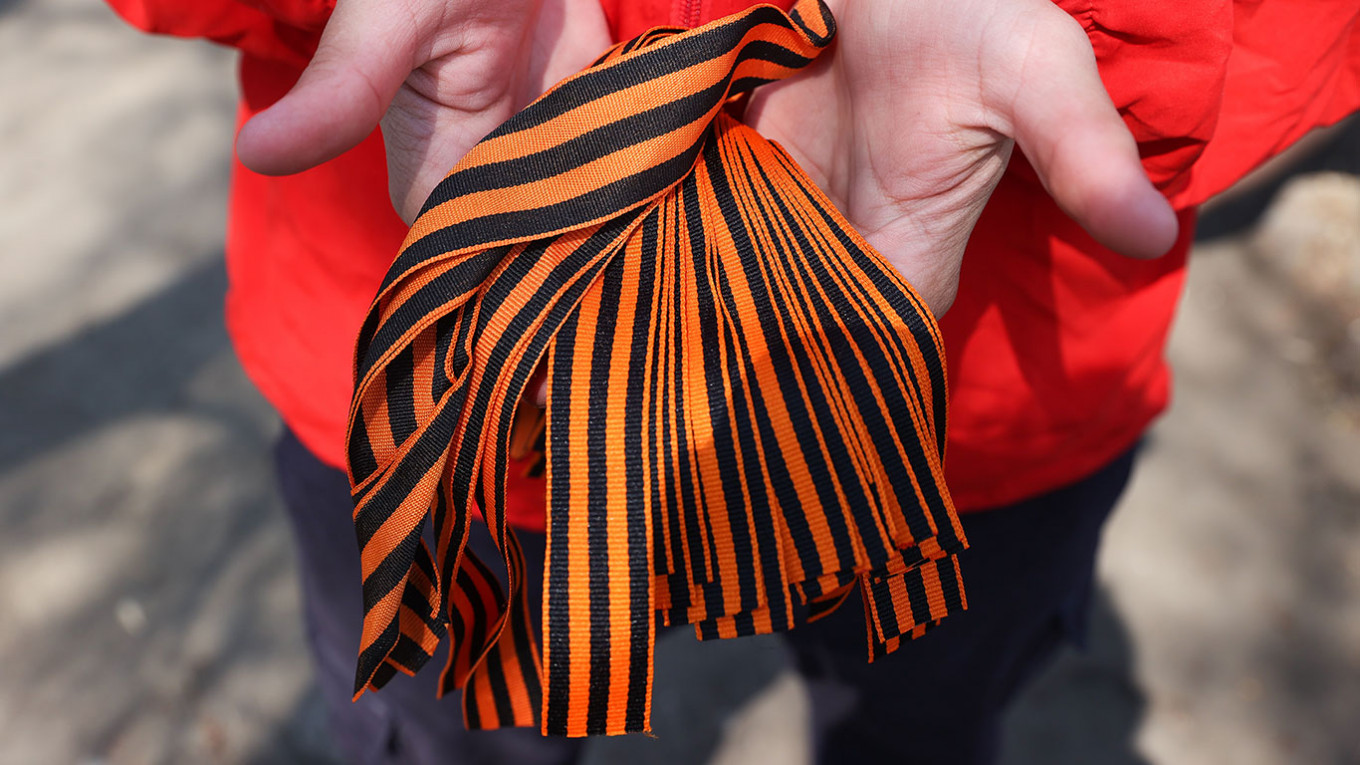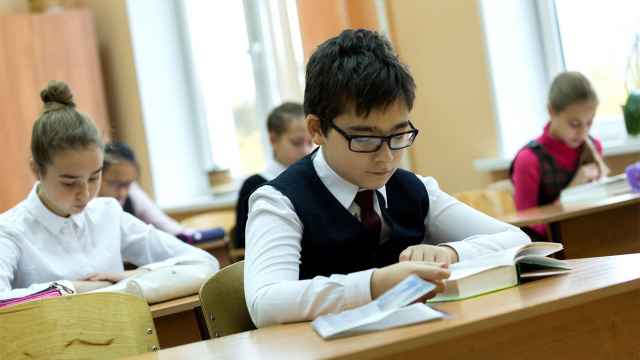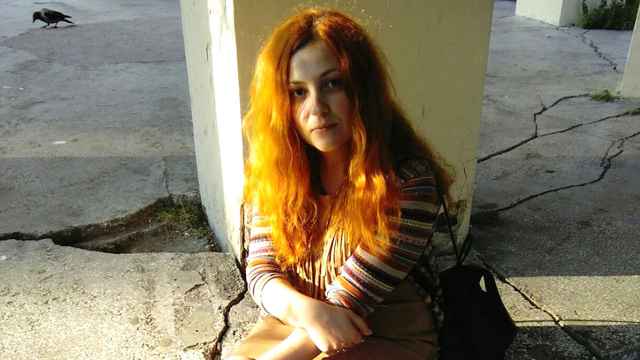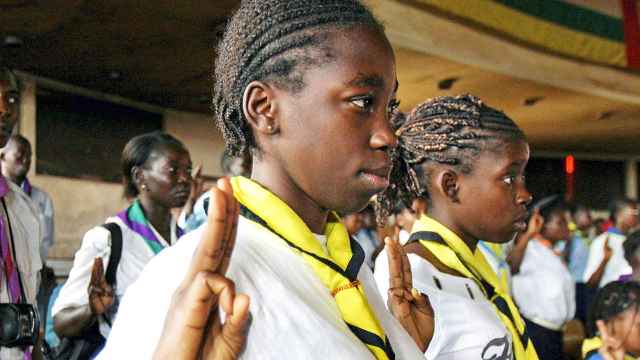As the Kremlin’s war in Ukraine raged, Yelena Bagaeva, an English teacher from the Siberian republic of Buryatia, held a discussion with her students about the events dominating the headlines.
“I tried to convey that any war is bad, that you can’t wish death on Ukrainians and hate them, they are people like us,” she recounted to local media of the March discussion.
But one of her seventh-grade students recorded the discussion — and the next day, the student’s mother reported Bagaeva to the school’s administration and the police, accusing her of spreading “anti-Russian propaganda.”
Bagaeva, 31, was charged with “discrediting the Russian Armed Forces” — a new offense introduced in the wake of Russia’s invasion of Ukraine — and fined 40,000 rubles ($618).
Since Russia invaded Ukraine on Feb. 24, the authorities have heavily pushed pro-war messaging and symbols across nearly every level of society — and not even schools and nurseries have been exempt.
Oftentimes, it is school staff, parents and even students themselves who contribute to the persecution of those who oppose the war, teachers and parents interviewed by The Moscow Times said.
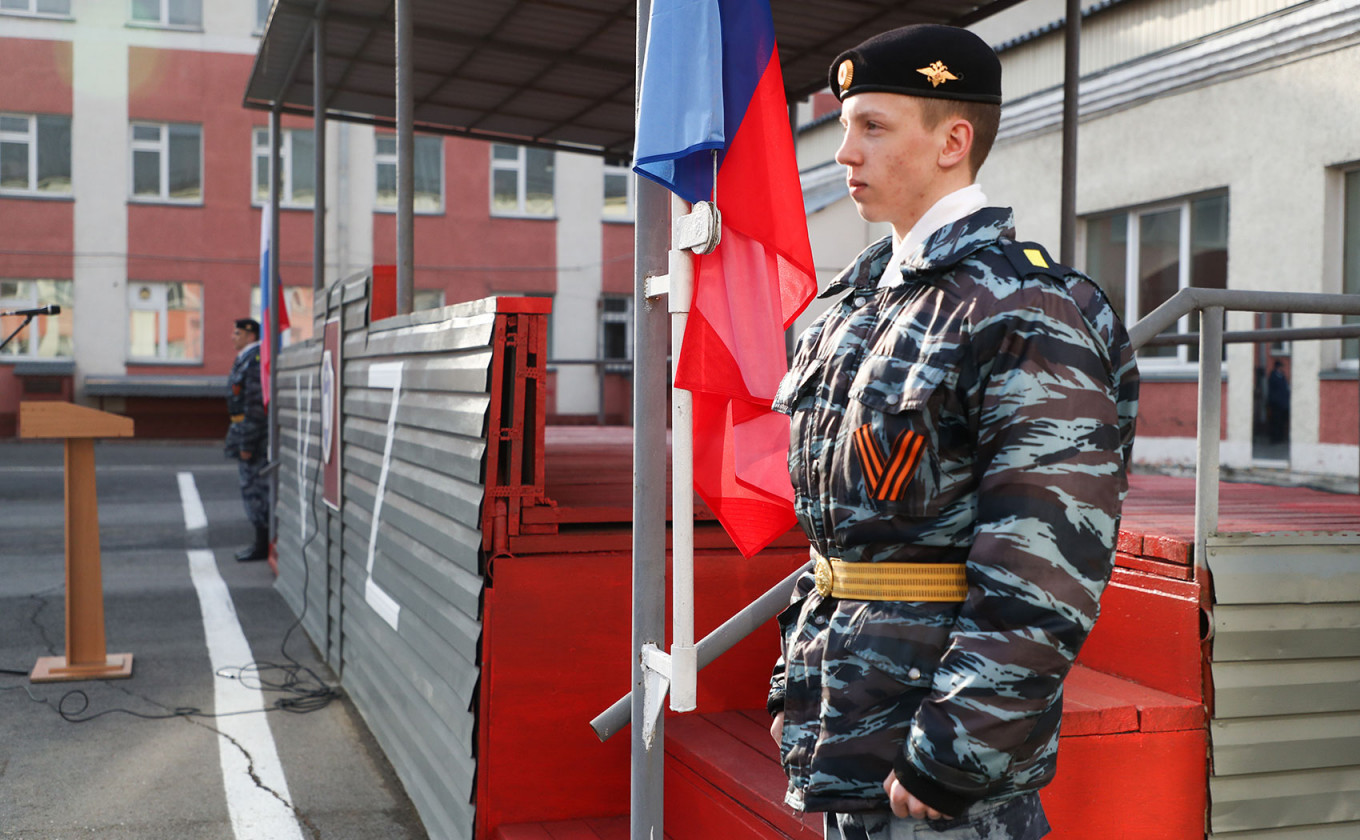
“What we could consider pro-war propaganda is happening in most schools all over the country,” Daniil Ken, the head of the independent Teachers’ Alliance union, which is associated with jailed Kremlin critic Alexei Navalny’s movement, told The Moscow Times.
From social media, Ken said, one could estimate that up to 95% of schools in Russia have taken a stance of public support for the war in Ukraine.
Schools in at least two regions — the Moscow region and the republic of Bashkortostan — showed their students recordings of President Vladimir Putin’s speeches on the first day of the invasion, Ken added.
A teacher at a state school who spoke on condition of anonymity said all the teachers at her school were told to organize class meetings in support of the war.
“You could try to avoid it,” she said. “But if you did, your class would still have to listen to it. Another teacher would have substituted you.”
The principal, who was also a deputy for the ruling United Russia party, claimed the school was “apolitical.”
“However, any anti-war posters in restrooms, social media posts or even discussions among students were nipped in the bud,” the teacher said.
“According to federal law, education is defined by state-approved programs,” Ken said. “And there is nothing about the “special military operation” in those programs. So technically, a teacher does not have to organize such lessons. This is why such directions are given unofficially.”
Ken said that this was the reason many teachers faced no consequences when they refused to engage in propaganda.
“Others were pressured in a different way,” he said. “Worse working conditions, quibbles about their work, but no official punishment for anti-war views.”
Every week, the Teachers’ Alliance receives 10 to 15 letters from teachers who were fired, pressured to quit their jobs or fined for their anti-war views.
Ken said the real number of such cases is likely higher as many go unreported.
Some teachers were fired over their anti-war views or refusal to “monitor” their students’ social media accounts and report anti-war content. This is what happened to language and literature teacher Nataliya Aleksandrova from the Urals town of Revda.
However, losing a job is not the worst thing that can happen to teachers who don’t support the invasion.
Under a new law signed by Putin in March, sharing non-Kremlin-approved information, or “fake news,” about the “special military operation” can be punished with up to 15 years in prison. Conversations with students also fall into that category.
Last month, authorities opened criminal charges against Irina Gen, an English teacher from the central Russian city of Penza, on accusations of spreading “fake news.”
On March 18, Gen had a discussion about the war in Ukraine with one of her students. Five days later, two FSB officers came to Gen’s workplace and demanded that she go with them. Gen followed them to their office, where she learned that the FSB had the recording of the conversation she had in the classroom.
If found guilty, Gen faces up to 10 years in prison.
Although such cases have been surfacing since the start of the war, Ken said he doubts that it is a mass phenomenon.
“In terms of the cases we know, it is the school administration that reports the teachers,” he said. “Or, the teachers are fined for their social media posts, either based on anonymous complaints or police reports. But if such cases emerge, most of them receive a lot of media attention.”
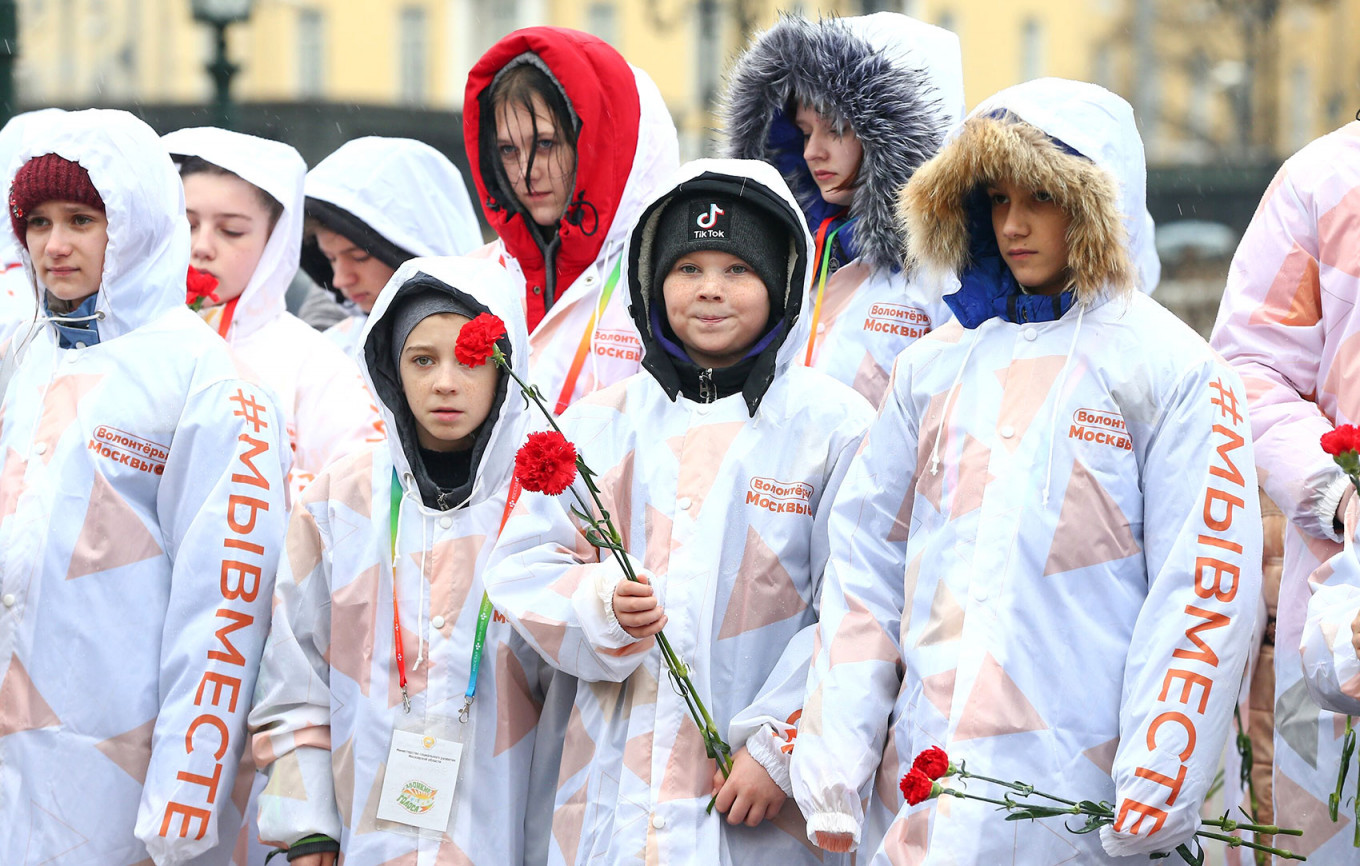
Last week, St. Petersburg teacher Boris Romanov was arrested and put into a pre-detention center for voicing his anti-war views, the Teachers’ Alliance reported.
Teachers are not the only ones to have felt pressure to vocally back the war. Parents who oppose the war are left with few options other than making their children skip school. Private schools that don’t receive financial support from the government are no exception.
“Such things happen every Victory Day,” the father of a third-grader at the Albertina private school in Russia's western exclave region of Kaliningrad told The Moscow Times. “The directions are given in a very strict tone: ‘All children must come wearing St. George ribbons’,” a patriotic symbol traditionally worn on Victory Day when Russia marks the anniversary of the Soviet Union's victory over Nazi Germany.
This year, however, he said one of the children in the class also wore the letter “Z,” which has become a symbol of support for the war, to the Victory Day celebration.
A photo was then shared in a group chat for parents.
“I have no idea why they do this in a private school,” said the father.
“It seems that the simplest option here is just to say that your kid is ill and not to take her to school.”
A Message from The Moscow Times:
Dear readers,
We are facing unprecedented challenges. Russia's Prosecutor General's Office has designated The Moscow Times as an "undesirable" organization, criminalizing our work and putting our staff at risk of prosecution. This follows our earlier unjust labeling as a "foreign agent."
These actions are direct attempts to silence independent journalism in Russia. The authorities claim our work "discredits the decisions of the Russian leadership." We see things differently: we strive to provide accurate, unbiased reporting on Russia.
We, the journalists of The Moscow Times, refuse to be silenced. But to continue our work, we need your help.
Your support, no matter how small, makes a world of difference. If you can, please support us monthly starting from just $2. It's quick to set up, and every contribution makes a significant impact.
By supporting The Moscow Times, you're defending open, independent journalism in the face of repression. Thank you for standing with us.
Remind me later.



